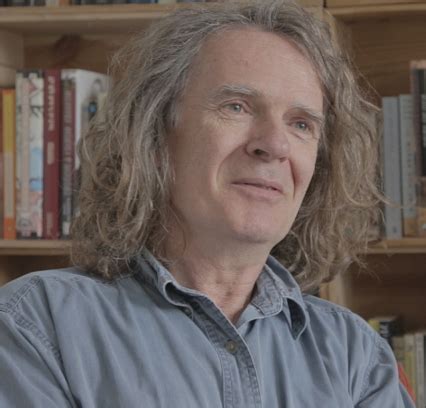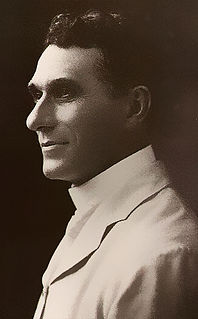A Quote by Bertrand Russell
Are you never afraid of God's judgement in denying him? Most certainly not. I also deny Zeus and Jupiter and Odin and Brahma, but this causes me no qualms. I observe that a very large portion of the human race does not believe in God and suffers no visible punishment in consequence. And if there were a God, I think it very unlikely that He would have such an uneasy vanity as to be offended by those who doubt His existence.
Quote Topics
Afraid
Also
Believe
Believe In God
Brahma
Causes
Certainly
Consequence
Deny
Denying
Does
Doubt
Existence
God
Him
His
His Ex
Human
Human Race
Judgement
Jupiter
Large
Me
Most
Never
Observe
Odin
Offended
Portion
Punishment
Qualms
Race
Suffers
Think
Those
Uneasy
Unlikely
Vanity
Very
Visible
Were
Would
Zeus
Related Quotes
Next time someone tells me they believe in God, I'll say 'Oh which one? Zeus? Hades? Jupiter? Mars? Odin? Thor? Krishna? Vishnu? Ra?...' If they say 'Just God. I only believe in the one God,' I'll point out that they are nearly as atheistic as me. I don't believe in 2,870 gods, and they don't believe in 2,869.
An atheist is someone who is certain that God does not exist, someone who has compelling evidence against the existence of God. I know of no such compelling evidence. Because God can be relegated to remote times and places and to ultimate causes, we would have to know a great deal more about the universe than we do now to be sure that no such God exists. To be certain of the existence of God and to be certain of the nonexistence of God seem to me to be the confident extremes in a subject so riddled with doubt and uncertainty as to inspire very little confidence indeed.
It is an insult to God to believe in God. For on the one hand it is to suppose that he has perpetrated acts of incalculable cruelty. On the other, it is to suppose that he has perversely given his human creatures an instrument - their intellect - which must inevitably lead them, if they are dispassionate and honest, to deny his existence. It is tempting to conclude that if he exists, it is the atheists and agnostics that he loves best, among those with any pretensions to education. For they are the ones who have taken him most seriously.
Those who say they believe in God and yet neither love nor fear Him, do not in fact believe in Him but in those who have taught them that God exists. Those who believe that they believe in God, but without any passion in their heart, any anguish of mind, without uncertainty, without doubt, without an element of despair even in their consolation, believe only in the God-idea, not in God.
I do not deny God, because that word conveys to me no idea, and I cannot deny that which presents to me no distinct affirmation, and of which the would-be affirmer has no conception. I cannot war with a nonentity. If, however, God is affirmed to represent an existence which is distinct from the existence of which I am a mode, and which it is alleged is not the noumenon of which the word I represents only a speciality of phenomena, then I deny God, and affirm that it is impossible God can be.
St. Augustine and St. Thomas define mortal sin to be a turning away from God: that is, the turning of one's back upon God, leaving the Creator for the sake of the creature. What punishment would that subject deserve who, while his king was giving him a command, contemptuously turned his back upon him to go and transgress his orders? This is what the sinner does; and this is punished in hell with the pain of loss, that is, the loss of God, a punishment richly deserved by him who in this life turns his back upon his sovereign good.
It is not unlikely, too, that the rejection of God is a kind of punishment: we may well believe that those who knew the Gods and neglected them in one life may in another life be deprived of the knowledge of them altogether. Also those who have worshipped their own kings as gods have deserved as their punishment to lose all knowledge of God.
The thing that was forfeited in the garden was regained. God gave him [Adam] dominion over the works of His hand. God made him His understudy, His king to rule over everything that had life. Man was master, man lived in the realm of god. He lived on terms of equality with God. God was a faith God. All God had to do was to believe that the sun was, and the sun was. All God had to do was to believe that the planets would be, and they were. Man belonged to God's class of being - a faith man, And he lived in the creative realm of God
The position of the Atheist is a clear and reasonable one. I know nothing about ‘God’ and therefore I do not believe in Him or in it; what you tell me about your God is self?contradictory, and therefore incredible. I do not deny ‘God,’ which is an unknown tongue to me; I do deny your God, who is an impossibility. I am without God.
But they that hold God to be [an incorporeal substance]do absolutely make God to be nothing at all. But how? Were they atheists? No. For though by ignorance of the consequence they said that which was equivalent to atheism, yet in their hearts they thought God a substanceSo that this atheism by consequence is a very easy thing to be fallen into, even by the most godly men of the church.
The main problem with those who deny the existence of God is not intellectual. It is not because of insufficient information, or that God's manifestation of himself in nature has been obscured. The atheists' problem is not that they cannot know God, rather it is they do not want to know him. Man's problem with the existence of God is not an intellectual problem; it is a moral problem." For the wrath of God is revealed from heaven against all ungodliness and unrighteousness of men - Rom. 1:18"


































